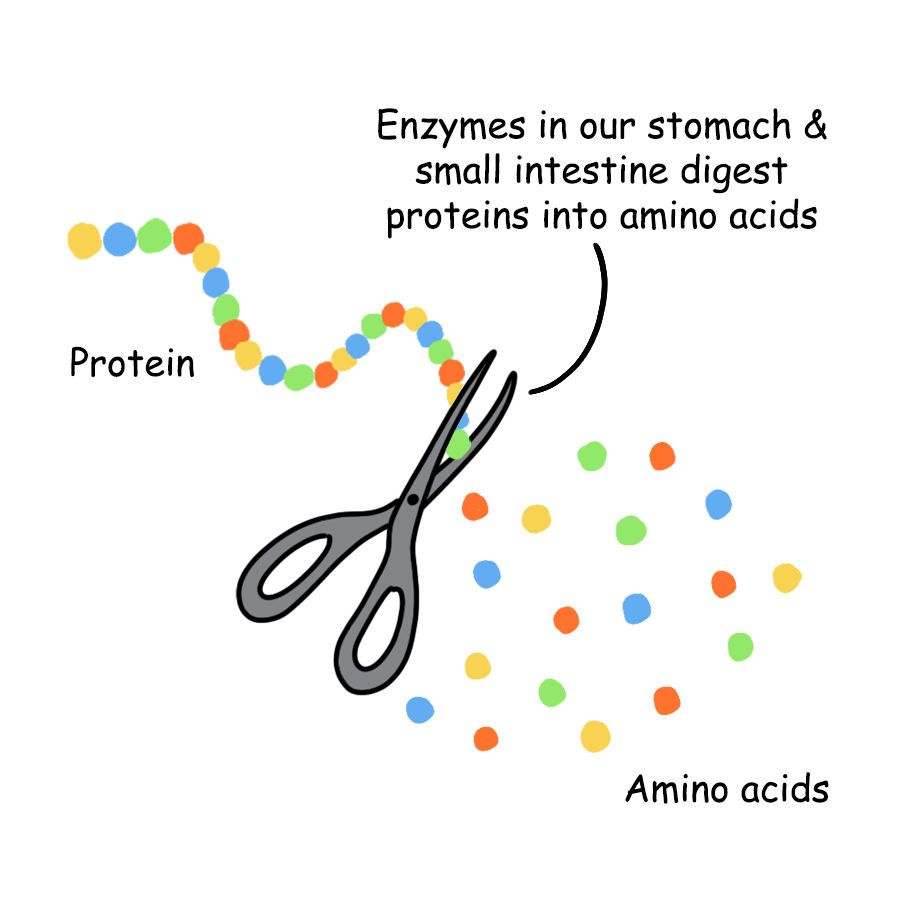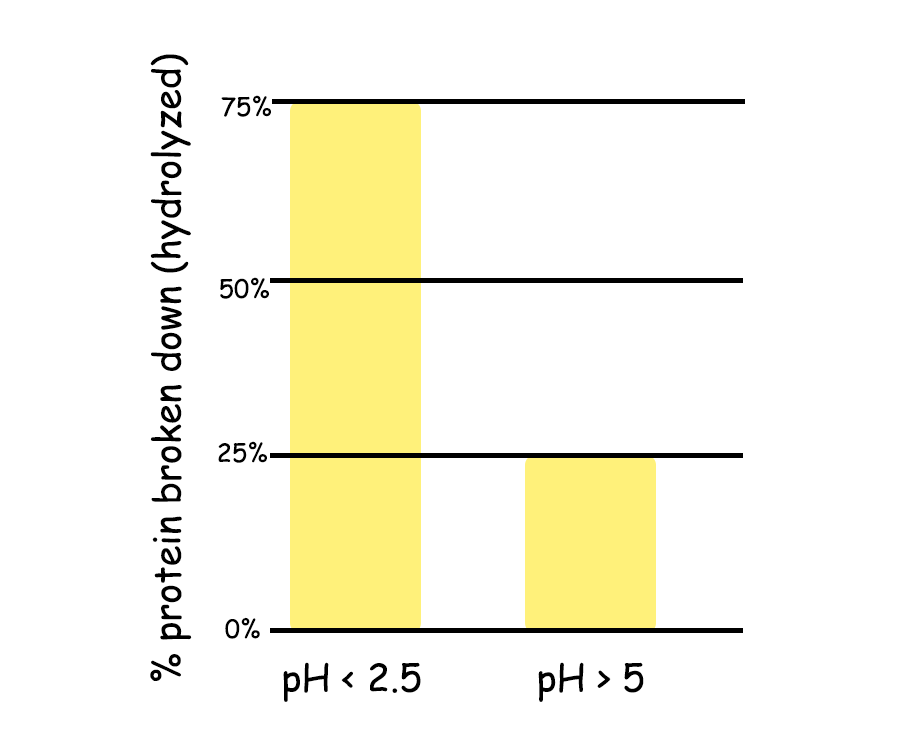How bitters may help you digest protein better

If you have difficulty trying to digest protein or feel very gassy after eating protein, this post is for you.
Let’s get started with a few facts.
It is estimated that whey protein is absorbed into your body at the rate of 10 grams an hour.
This means a scoop of 25 grams of Whey protein isolate will take about 2.5 hours to enter your bloodstream.
How much of the 25 grams is actually absorbed by your body?
This is tricky to answer because protein enters your body in one form (as protein), but enters your blood in another form (amino acids).

One study gathered 41 healthy participants and fed them 42.5 grams whey protein concentrate.
They noticed a 30% increase in total amino acids in roughly 4 hours. (absorbed at 10 grams / hour).
Then, they repeated the experiment with one change and saw a 3.5x bigger increase in the same time.
Dirty
or Clean?
Free Analysis
That’s 3.5x more protein absorbed in the same amount of time (4 hours)
The change: they increased number of the digestive enzymes which break the protein down into amino acids.
We’re going to show you a way to do that, naturally.

The juice to naturally fix your digestion problems
❤️ by 300+ nutritionists
How the body works to digest protein
Your body uses enzymes in the stomach and the small intestine to break protein into smaller pieces called amino acids.
If you are new to enzymes, imagine a very small digestive knife which cuts food into small pieces.
One of the key enzymes lies in the stomach, and is called pepsin.
Pepsin is unique; it only works in an acidic environment.
Acid environments are measured in pH. pH 1 is very acidic and pH 14 is very alkaline.
When you aren’t eating, your stomach pH may be between 1 and 3.
But when you eat food,
Step 1: the stomach becomes pumping acid to drop the pH further
Step 2: the extra acid activates pepsin, which start breaking the protein down
The trouble begins when you eat a scoop of 20gms of protein in the form of protein powder.
In nature, 20g of protein would have come in the form of a chicken breast, 10 eggs or a bowl of paneer.
It would have taken longer to eat, and would stay in your stomach for between 3-5 hours.
In this case, the powder makes it to your stomach in a matter of seconds, and on-average, stays there for only 1.5 hours.
So you can see the trouble: you have to digest more protein in less time.
Can it be done? As the study above shows, enzymes seem to speed up protein digestion significantly.
How to increase enzymes which digest protein?
In most cases, your body already has the enzymes that it needs to digest protein.
You simply need to activate those enzymes by dropping the pH in your stomach.
Said differently, help your stomach make more acid.
Studies show that when your stomach pH goes below 2.5, nearly 100% of your Pepsin enzymes may be activated.
Is that good enough? As per stomach acid specialist researcher, Jonathan V. Wright M.D, absolutely.

In fact, reducing the stomach pH actually improves protein digestion by enzymes outside the stomach too.
Protein is also digested in the small intestine, mainly by an enzyme called Trypsin.
Trypsin only works in an alkaline environment. This means it needs a pH of 8 to work best.
Researchers found that when the pH is <2.5 in the stomach, the body works even harder to make the pH 8 in the intestine.
This may activate more Trypsin than usual.
The result: protein that has been digested properly in the stomach and the intestine.
Said differently: protein that is ready for absorption.
How to decrease stomach pH, naturally?
You can eat more acidic food or food that encourages stomach acid.
For example, coffee can increase stomach acidity, but it can also affect sleep and get quite addictive.
Instead, try an extremely bitter tasting herb.
Bitters are known to trigger the stomach to increase acid, and lower the pH substantially.
The reason is unknown, although researchers suspect that it is the body’s defense mechanism.
Most toxins and toxic chemicals in nature actually taste bitter, so bitter foods seem to trigger the body’s natural defense.
Increasing the amount of stomach acid is one such defense measure.
Just google ‘digestive bitters’ to get an idea of how widely used bitters are to improve stomach, gut and liver health.
Which bitter helps digest protein best?
There are a range of bitters you can try. Gentian, Wormwood and Kalmegh are among the top.
But if you are Indian, Kalmegh should be your first choice.
Kalmegh is locally grown, has a 2000+ year history of safe use on Indian bodies, and has very, very low toxicity.
In fact, the Food Standards and Safety Authority of India in 2018 allowed food companies to use Kalmegh in food products (in limited quantities).
Kalmegh is additionally a holistic wellness product, with clinically tested effects on gut health, liver health, lung health and immunity. You can learn more, here.
How will I feel after taking bitters?
If you are just getting started with your workout routine and 100+ gram protein diet, bitters may help you feel less bloated and gassy.
A lot of people report a tremendous surge in energy, and a general ‘lightness’ throughout the day.
It’s the magic of a fully-functioning digestive system which is capable of handling your new high-protein diet.
It goes without saying that everyone’s experience is slightly different.
Why don’t you try Kalmegh Bitters for a week, and let us know how you feel?








